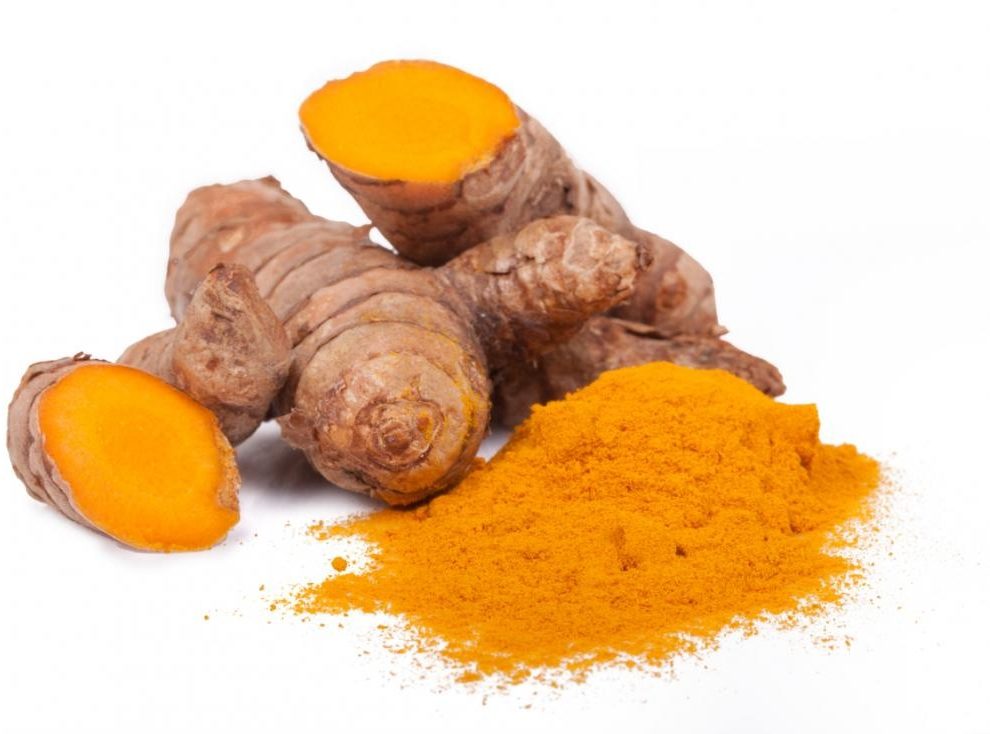
Cinnamon, a spice treasured by many for its warm, sweet flavor, is not just a delightful addition to your meals. It’s also packed with numerous health benefits. From managing diabetes to promoting heart health, this aromatic spice is a powerhouse of wellness. In this article, we will explore 20 benefits of cinnamon, answering the question: “Is cinnamon good for you?”
Cinnamon and Diabetes
The Power of Cinnamon in Diabetes Management
Diabetes, a chronic condition that affects millions worldwide, requires careful management of blood sugar levels. Here, cinnamon emerges as a potential game-changer. Research suggests that this spice can help lower blood sugar levels and improve insulin sensitivity. But what type of cinnamon is best for diabetes?
Both Ceylon and Cassia cinnamon have shown beneficial effects. However, Ceylon cinnamon, often referred to as “true cinnamon,” is usually recommended due to its lower coumarin content. Coumarin, found in higher amounts in Cassia cinnamon, can be harmful in large doses.
Best Cinnamon Supplements for Diabetes
If you’re considering cinnamon supplements for diabetes, it’s important to choose high-quality products. Look for supplements that specify “Ceylon” on the label to ensure you’re getting the most beneficial type of cinnamon.
Top 3 Cinnamon Supplements for Diabetes:
- Brand A Ceylon Cinnamon Capsules: Known for their high-quality ingredients and rigorous testing.
- Brand B Organic Ceylon Cinnamon: Certified organic and offers a potent dose of cinnamon.
- Brand C Ceylon Cinnamon Tablets: Convenient for those who prefer tablets over capsules.
Remember, it’s always best to consult with a healthcare provider before starting any new supplement regimen.
Cinnamon and Weight Loss
Cinnamon: A Secret Weapon for Weight Loss?
Weight loss is a complex process involving diet, exercise, and a multitude of other factors. Interestingly, cinnamon might be your new best friend if you’re trying to lose weight. It’s thought to help reduce appetite and speed up metabolism, making it easier to achieve a calorie deficit. So, which cinnamon is best for weight loss? Both Ceylon and Cassia cinnamon can be used, but Ceylon is often preferred due to its sweeter, more delicate flavor.
Best Ways to Incorporate Cinnamon for Weight Loss
Adding cinnamon to your diet can be as simple as sprinkling it on your morning oatmeal or adding it to your coffee. For a more concentrated dose, consider a high-quality cinnamon supplement.
5 Delicious Ways to Use Cinnamon for Weight Loss:
- Cinnamon in your morning coffee or tea: Adds a sweet, spicy kick to start your day.
- Sprinkled on whole grain toast: Pairs well with a bit of natural almond butter.
- Added to smoothies: Gives a burst of flavor and health benefits.
- In homemade granola or oatmeal: A delightful way to enhance your breakfast.
- As a spice in savory dishes: Works well in stews, soups, and curries.
Remember, cinnamon should be used as part of a balanced diet and regular exercise routine for best weight loss results.
Cinnamon and Heart Health
Cinnamon’s Role in Heart Health
Cinnamon isn’t just tasty; it’s also good for your heart. Studies suggest that it can help lower cholesterol and blood pressure, two significant risk factors for heart disease. Whether you’re sprinkling it on your food or taking a supplement, cinnamon can be a heart-healthy addition to your diet.
Best Cinnamon for Blood Pressure
While both types of cinnamon have heart benefits, Ceylon cinnamon is often recommended for those specifically looking to manage their blood pressure. Its lower coumarin content makes it a safer choice for long-term use.
3 Ways to Use Cinnamon for Heart Health:
- In your morning oatmeal: A delicious way to start your day with a heart-healthy boost.
- Sprinkled on fruit: Adds a sweet, spicy flavor to fresh apples or pears.
- In a warm cup of tea: A comforting, heart-friendly beverage.
Cinnamon and Digestive Health
Soothing Digestive Issues with Cinnamon
Cinnamon has been used for centuries to soothe digestive issues. It’s thought to help with conditions like ulcerative colitis and constipation due to its anti-inflammatory properties. Adding a sprinkle of cinnamon to your meals can not only enhance flavor but also promote better digestive health.
5 Digestive-Friendly Cinnamon Recipes:
- Cinnamon-infused water: A simple, refreshing beverage.
- Cinnamon and ginger tea: A soothing drink for your digestive system.
- Cinnamon-spiced rice: A flavorful twist on a staple food.
- Cinnamon apple sauce: A delicious, easy-to-digest snack.
- Cinnamon roasted vegetables: Adds a sweet, spicy touch to your veggies.
Cinnamon and Other Health Benefits
Cinnamon: A Multifaceted Health Booster
Beyond its benefits for diabetes, weight loss, heart health, and digestion, cinnamon has a host of other health-promoting properties. It’s thought to be good for conditions like psoriasis, prostate cancer, and gout. It may also help with memory, hair loss, and joint pain. Additionally, cinnamon is believed to have beneficial effects on the kidneys, liver, and skin.
Skin Health
Cinnamon is thought to be beneficial for various skin conditions, including psoriasis. Its anti-inflammatory and antimicrobial properties can help soothe inflammation and prevent infection, promoting healthier skin.
Prostate Health
Emerging research suggests that cinnamon may have potential benefits for prostate health. Some studies indicate that the spice could play a role in preventing prostate cancer, although more research is needed in this area.
Gout Management
Cinnamon’s anti-inflammatory properties may also make it a useful tool in managing gout, a type of arthritis characterized by painful inflammation in the joints.
Memory Enhancement
Cinnamon has been linked to improved brain function, including memory and attention. Some research suggests that consuming cinnamon can help improve memory and cognitive processing, making it a potential brain booster.
Hair Health
Cinnamon is often used in natural hair care products due to its purported benefits for hair health. It’s believed to stimulate hair growth and may also help with common issues like dandruff.
Joint Pain Relief
The anti-inflammatory properties of cinnamon may help alleviate joint pain and stiffness, particularly in individuals with conditions like arthritis.
Kidney Health
Cinnamon’s potential benefits for kidney health are currently being explored. Some studies suggest that the spice may help protect against kidney damage, particularly in individuals with diabetes.
Liver Health
Cinnamon is also thought to have beneficial effects on liver health. It’s been suggested that the spice may help protect the liver from damage and improve its function.
Inflammation Reduction
Cinnamon is known for its potent anti-inflammatory properties, which can help reduce inflammation in the body. This may have widespread benefits, as chronic inflammation is linked to many health conditions, from heart disease to cancer.
In conclusion, cinnamon is a multifaceted spice with a wide range of potential health benefits. Whether you’re adding it to your meals or taking it as a supplement, this spice could be a valuable addition to your health regimen. As always, it’s important to consult with a healthcare provider before making significant changes to your diet or supplement routine.
Frequently Asked Questions
1. What type of cinnamon is best for diabetes?
Both Ceylon and Cassia cinnamon have shown beneficial effects for diabetes, but Ceylon cinnamon is often recommended due to its lower coumarin content. Coumarin, found in higher amounts in Cassia cinnamon, can be harmful in large doses.
2. How can cinnamon help with weight loss?
Cinnamon is thought to help reduce appetite and speed up metabolism, making it easier to achieve a calorie deficit. It can be incorporated into your diet by sprinkling it on your food or taking a high-quality cinnamon supplement.
3. Can cinnamon improve heart health?
Yes, studies suggest that cinnamon can help lower cholesterol and blood pressure, two significant risk factors for heart disease. Both types of cinnamon, Ceylon and Cassia, have heart benefits.
4. How does cinnamon aid in digestion?
Cinnamon has been used for centuries to soothe digestive issues. It’s thought to help with conditions like ulcerative colitis and constipation due to its anti-inflammatory properties.
5. What other health benefits does cinnamon offer?
Cinnamon has a host of other health-promoting properties. It’s thought to be good for conditions like psoriasis, prostate cancer, and gout. It may also help with memory, hair loss, and joint pain. Additionally, cinnamon is believed to have beneficial effects on the kidneys, liver, and skin.
Conclusion
From its potential to manage diabetes and support weight loss to its heart and digestive health benefits, cinnamon proves to be more than just a flavorful spice. It’s a powerhouse of health benefits, making it a worthy addition to your diet. So, is cinnamon good for you? The research certainly suggests so. As always, it’s important to consult with a healthcare provider before making significant changes to your diet or supplement routine. Enjoy the warmth and wellness that cinnamon brings to your life!
Blog Tags: Cinnamon, Health Benefits, Diabetes Management, Weight Loss, Heart Health, Digestive Health, Skin Health, Prostate Health, Gout Management, Memory Enhancement, Hair Health, Joint Pain Relief, Kidney Health, Liver Health, Inflammation Reduction.













